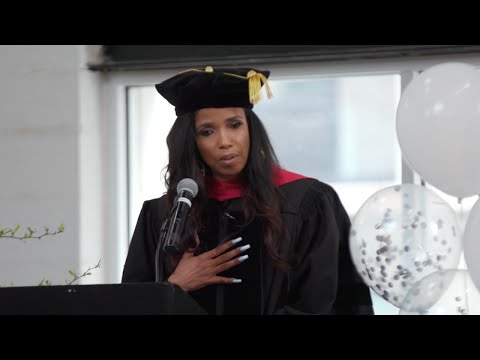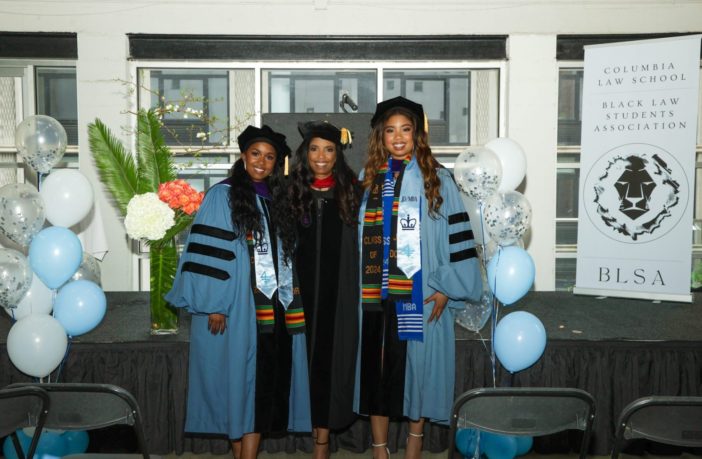My world came full circle in the space of a week this May. Early in the month, I was privileged to speak at an alumni event for my high school, Rosati-Kain in St. Louis, Missouri. The teachers and leaders of Rosati-Kain inspired and believed in me when I was a teenager—and I needed it. I was a Black girl who’d spent my short life hearing from other adults that I was “from the wrong side of the tracks,” that I was “a statistic” destined to fail. At Rosati-Kain, I got a very different message. In my speech at the alumni event, I talked about how it was at that school that I found a community—a sisterhood—and discovered that I had within me the power to persevere.
Days after giving that speech, I found myself delivering the most meaningful address of my life, at an event that truly embodied the theme of sisterhood, power and perseverance. The sisters I celebrated that day were my own two daughters, graduating together from Columbia Law School. These extraordinary young women made history as the first Black women and the first-ever siblings to attend Columbia’s combined
JD/MBA program together. They did so as they and their classmates endured myriad challenges—the pandemic, masking, social distancing, Supreme Court decisions that are upending our rights, global conflict, national student protests with Columbia at their epicenter, and the cancellation of the school’s main commencement ceremony. In the wake of that cancellation, a traditional graduation celebration held by the Black Law Students Association took on new significance, and I was honored to be an opening speaker for the gathering.
The speeches at Columbia and at Rosati-Kain coalesced around themes of community and support, and what we—each and every one of us, but Black women in particular—can accomplish when we receive them. I have watched my daughters break down barriers and smash glass ceilings all their lives, and Columbia was no exception. As a family, we have spoken at length about the importance of mentorship, family, friendship and sisterhood—as well as the ways in which our accomplishments are a tribute to the ancestors who sacrificed for us and now watch over and celebrate with us. Our family community, the Rosati-Kain community, and the community of Black law graduates I addressed at Columbia are deeply familiar with how daunting and overwhelming it can be, as a Black woman, making history by being the first in any environment.
In elite communities like the Ivies, being the first often means being the only, which means individual isolation paired with an environment where micro aggressions and overt hostility toward Black people is a tradition in and of itself. Being the only Black person means you encounter questions that suggest you represent your entire race and can speak on their behalf. It means fearing you are being scrutinized by people who will use any mistake you make to judge your community as a whole.

As my daughters and their Black peers move out into the wider, still very white, and incredibly demanding world of practicing law in this country, they might have to work even harder to forge nurturing new communities as well as continue to sustain the family ties that have held them, and helped them get this far. After all, less than five percent of this nation’s lawyers are Black. Black women make up less than one percent of law partners at US firms and just three percent of associates. Just as I reminded my fellow alumni at Rosati-Kain, I told the effervescent young graduates at Columbia that community is the key to power and perseverance. In that moment, I was doubly proud to watch my beautiful daughters prepare to join my chosen profession and continue the family legacy their father Ernest and I began when we set out to open our own civil rights law practice. We are few but we are powerful, and with their graduation our community has grown bigger and stronger. I am awed by their perseverance, moved by their sisterhood, and honored to be able to welcome them to the club.



